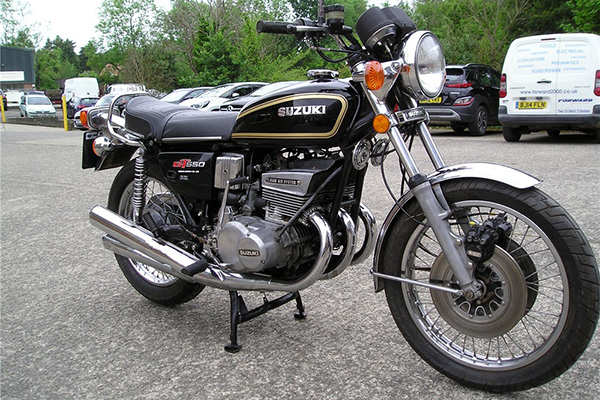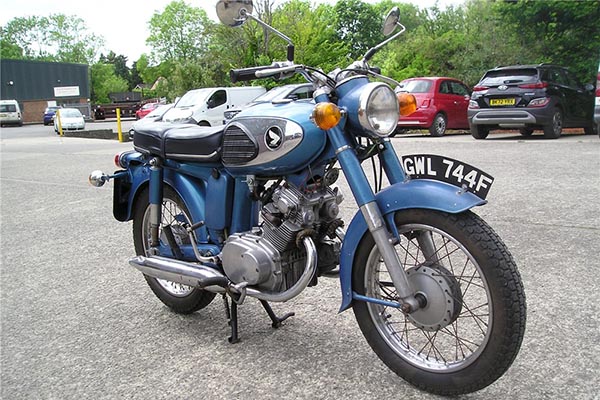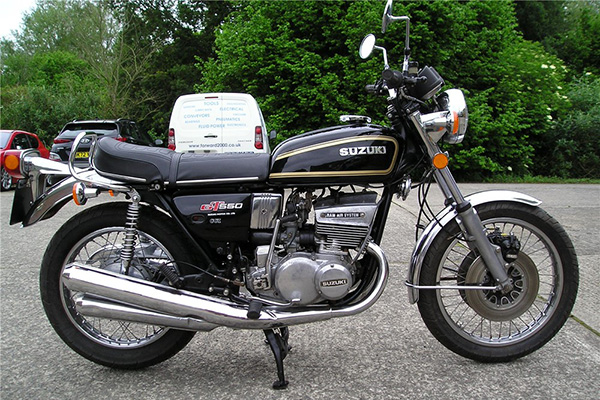Get A Classic Bike - It Could Be Good For Your Mental Health (Apart From That Persistent Misfire...)
There's a mantra that echoes around accounts departments, and across kitchen tables and living rooms across the nation, when economic times are fragile and we're anxious about finances: "is it something we'd like, or is it something we need?"
When it comes to classic motorcycles few will admit it, but many will think it: buying something we'd like rather than paying for something we need often triumphs - or, er, Hondas, or BSAs, or Yamahas or Nortons...
Scientists say that riding a bike releases dopamine and endorphins - things that make us smile inside - while recent surveys on why people own and ride motorcycles reveal around 60% of us ride simply for the sense of freedom. Given most classic bikes are used for fun rather than work, that probably means owning and riding a classic bike is likely good for the mental health of the vast majority of owners of old bikes.
So how do we enter this world of freedom?
While few people are playing in the big league of epic £20,000-plus machines, entry level and "value" bikes are doing well for those who read the room - and read the market - so rather than sitting on the fence about owning a classic, maybe the time is right to swing a leg: it could be good for us.
"I listed a 1977 Suzuki GT550 in black. Within 24 hours it had sold," said Charlie Garratt of Oxford Classic Motorcycles.

"It was £4,500. It's a price I made clear was firm, like everything else we have, but it was a price which was aimed to make it affordable, and it's an approach that's working for me," he said.
"It was original - the way people like them - and just what people are looking for. The bubble seems to have burst on bigger two-strokes, things like Suzuki GT750s and Kawasaki H1s and H2s, but nice '70s and '80s two-strokes like Yamaha RD250s and RD400s, or RD250LCs and RD350LCs are selling almost immediately.
"Bikes like the Honda 400/4 and 500/4 are also pretty popular too," he said, phone continuously ringing in the background.
He says that 60% of the bikes he sells are bought by customers over the phone without even being viewed, which probably also says a great deal about the camaraderie and trust there is in the classic market, another mental health plus.
"It's the old story: buyers are going after very specific bikes they wanted or owned at 18," he adds. And those buyers are mainly in the 45-80 age bracket, with only one in fifty being under 30.
"The market has definitely softened, there's great price sensitivity, but it's all about affordability," says Charlie. "There are definitely fears for the market, maybe it's going the way of classic cars: a market geared for mature people with a bit of money.
"People will always buy and sell classic bikes, and it's always evolving, but the biggest fears (amongst the community) are what might happen about availability of suitable fuel, and whether classic bikes will be legislated against."
Those are issues the current Government has said we need not be worried about, but such is the value of the classic vehicle market and potentially powerful lobby of enthusiasts, it's considered unlikely future governments will tinker and risk loss of classic petrolheads' votes. For now the value end of the market does not look under any sort of threat.
Oxford Classics website lists dozens of sub-£3,000 bikes, mainly Japanese, but also European and British.
The listings with "SOLD" splashed across them reflect a cross-section of the sorts of machines that are turning the eye of both new entrants and experienced classic bike enthusiasts alike: small and middleweight Japanese bikes, a splash of Brits and the occasional German or Italian machine.
Small capacity trail bikes such as a 1994 Kawasaki KE175 at £1,995 - something that would have been closer to £3,000 pre-pandemic - reflect the movement of values in some sectors, but, equally, a 1967 Honda CD175 at £1,795 and 1982 Honda CD200 commuter bike at £1,695 confirm Charlie's view that certain classics hold their value: those bikes would have been similar prices five years ago too.

So why do we buy bikes we want rather than spend money on other stuff we need?
Psychologists and academics, some of whom ride bikes, say people buy, own, tinker-with and ride motorcycles in times of difficulty - whether personal or the wider economic environment - often because they provide a freedom or an escape, providing a sensory experience like nothing else.
Maybe classic bikes do fall into the category of something many of us need. In challenging and uncertain times, perhaps buying a classic bike should be prescribed in the same way the NHS prescribes walking and gym membership.
Just imagining fresh air, country lanes and no phone calls or emails should be enough to take yourself and your endorphins off to your nearest classic bike dealer...

You can get a quote of up to 5 bikes with us online! To find out more about Classic Bike Insurance from FJ, please click here.

COMMENT